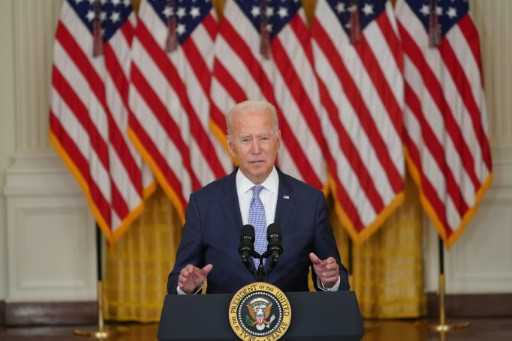U.S. consumer confidence hits 10-year low amid rising inflation
14 November, 2021

Rising prices taking a bite out of American wallets caused consumer sentiment to drop to a 10-year low in November, a sign inflation is increasingly a political liability for President Joe Biden.
While the world's largest economy has bounced back strongly from the COVID-19 pandemic impact, global shortages of key components and supply chain snarls have added to a U.S. worker shortage, raising costs and pushing prices higher.
Following a government data report Wednesday showing consumer price inflation jumped to a 30-year high of 6.2 percent in October, a survey released Friday with the sharp drop in sentiment came as another blow, although economists do not expect shoppers to pull back on spending.
The University of Michigan said its preliminary sentiment index dropped to 66.8 this month, a 6.8 percent decline.
Survey chief economist Richard Curtin said one in four families suffered eroding living standards but lower income families were feeling the most pain.
Biden on Wednesday pledged to make putting a lid on inflation was a "top priority," but Curtin attributed the dismal sentiment reading to "the growing belief among consumers that no effective policies have yet been developed to reduce the damage from surging inflation."
The US central bank has stuck to its view that most of the inflation pressures will fade once the global supply issues -- including ongoing manufacturing shutdowns, especially in Asia, due to coronavirus infections -- are resolved.
Federal Reserve officials have preached patience about deploying its main inflation-fighting tool -- raising the benchmark interest rate -- but announced it will start pulling back on pandemic stimulus, lowering its monthly bond purchases.
Low interest rates have fueled high demand for home-buying, sending prices higher, while vehicle and gasoline prices also have spiked worldwide.
"The description that inflation would be 'transient' has the undertone that consumers could 'grin and bear it,'" Curtin said in a statement.
The headline sentiment index reflected a drop in both the measure of current feelings and longer-term expectations, according to the survey.
In contrast The Conference Board's consumer confidence index rose in October, apparently more sensitive to the improving pandemic outlook.
Some economists are warning that the Fed will have to be more aggressive with rate hikes to contain prices, but others agree sentiment will recover next year as the supply issues fade.
"The deterioration in sentiment is unlikely to improve markedly until price pressures ease," said Mahir Rasheed of Oxford Economics.
Still, "consumers have continued to spend at a healthy clip and improvement in the health situation has fostered a strengthening recovery," he said.
Source: japantoday.com
